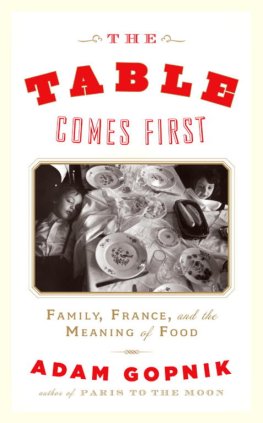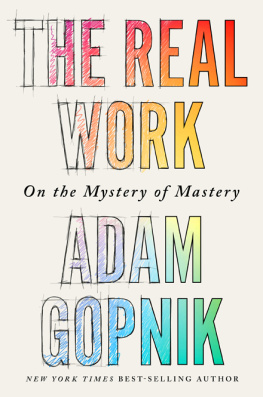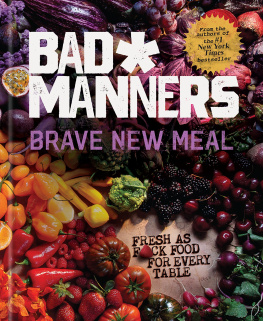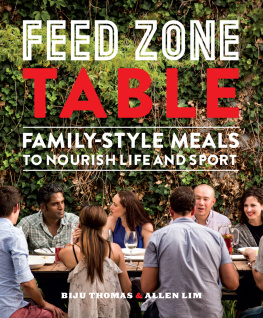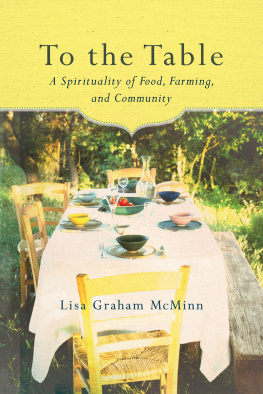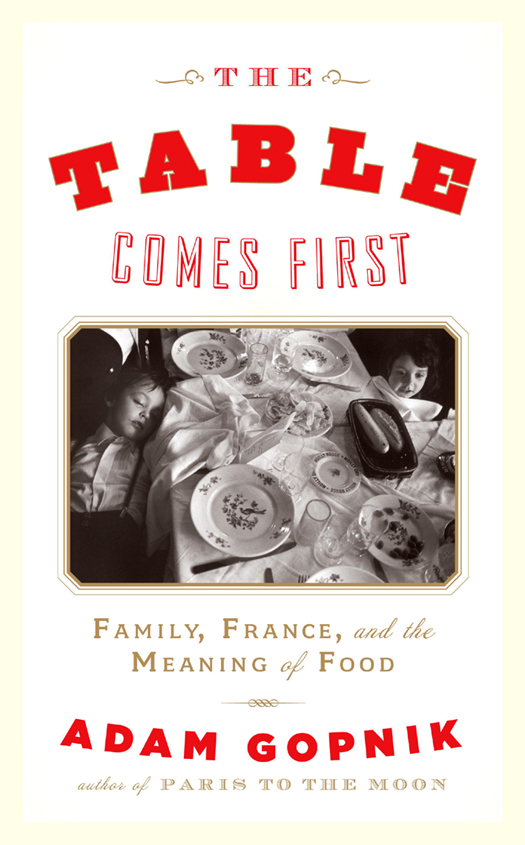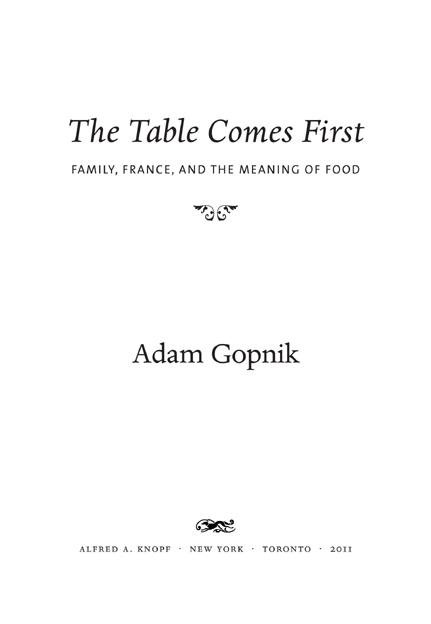All rights reserved. Published in the United States by Alfred A. Knopf, a division of Random House, Inc., New York, and in Canada by Alfred A. Knopf Canada, a division of Random House of Canada Limited, Toronto.
Knopf, Borzoi Books, and the colophon are registered trademarks of Random House, Inc.
Knopf Canada and the colophon are trademarks.
1. FoodSocial aspects. 2. Dinners and dining. 3. Food habitsFrance. I. Title.
GT2850.G67 2011
394.120944dc23 2011013564
A cook a pure artist
Who moves everyman
At a deeper level than
Mozart, for the subject of the verb
To-hunger is never a name:
Dear Adam and Eve had different bottoms,
But the neotene who marches
Upright and can subtract reveals a belly
Like the serpents with the same
Vulnerable look. Jew, Gentile or pigmy,
He must get his calories
Before he can consider her profile or
His own, attack you or play chess,
And take what there is however hard to get down:
Then surely those in whose creed
God is edible may call a fine
Omelette a Christian deed.
The sin of Gluttony
Is ranked among the Deadly
Seven, but in murder mysteries
One can be sure the gourmet
Didnt do it: children, brave warriors out of a job,
Can weigh pounds more than they should
And one can dislike having to kiss them yet,
Compared with the thin-lipped, they
Are seldom detestable. Some waiter grieves
For the worst dead bore to be a good
Trencherman, and no wonder chefs mature into
Choleric types, doomed to observe
Beauty peck at a master-dish, their one reward
To behold the mutually hostile
Mouth and eyes of a sinner married
At the first bite by a smile.
W. H. AUDEN , On Installing an American Kitchen in Lower Austria
Contents
A Small Starter: Questions of Food
We have happy days, remember good dinners.
CHARLES DARWIN
We eat to live? Yes, surely. But why then did the immortal gods also come to the table, and twice a day?
LON ABRIC
IN THE early morningsix-forty, preciselyof May 24, 1942, a young professor of German, a resistant who had taken the underground name of Jacques Decour (his real name was Daniel Decourdemanche) and who taught before the war at the Lyce Henri IV in Paris, wrote a letter to his parents:
You know that for the past two months I have been expecting what is to happen to me this morning; so I have had the time to prepare myself for it; but since I have no religion, I have not given myself up to any meditation on death. Here are a few requests. I was able to send a word to the woman I love. If you see hersoon I hopegive her your affection. This is my dearest wish. I also wish that you could keep an eye on her parents who need help badly. Give them the things that are in my apartment and which belong to their daughter: The volume of the PLEIADE, THE FABLES DE LA FONTAINE, TRISTAN, LES QUATRE SAISONS , two water colors, the menu of the inn LES 4 PAVES DU ROY .
All these last days I have thought a lot about the good meals that we should have together when I was free. You will eat them without me, all the family togetherbut not sadly, please! I dont want your thoughts to dwell on the good times that we might have had but on those that we really have shared. During these two months of solitude without even anything to read I have run over in my mind all my travels, all my experiences, all the meals that I have eaten. I even composed the outline of the novel. I had an excellent meal with Sylvain on the 17th. I have often thought of it with pleasure, as well as of the New Years supper with Pierre and Rene. Questions of food, you see, have taken on a great importance.
Three hours later, what was going to happen to Decour happened to him. He was shot by the Nazis in the courtyard of the prison. Yet there he was, in the last hours of his life, thinking about sending a menu from a little inn near Versailles to his girlfriends parents. (They must have eaten there, once.) His last thoughts turned to his best-loved meals. Of course, hes nobly trying to ease the horror for his parents, but hes also trying to find something to hang on to. Questions of food, you see, have taken on a great importance.
Questions of food seem to have taken on a great importance for us now, too. An obsessive interest in food is not a rich mans indulgence, confined to catering schools and the marginal world of recipe books. Questions of food have become the proper preoccupation of whole classes and cable networks. More people talk about food nowwhy they eat what they eat and what you ought to eat, toothan have ever done before. Our food has become our medicine, our source of macho adventure, and sometimes, it almost seems, our messianic material. Good food, or watching it get made, anyway, has become, in the age of Rachael Ray and Food Network, a popular sport, and even the many who still prefer fast food to fancy or fresh get to prefer it loudly.
But if our own obsession (and the obesity it fathers) keeps increasing, its spirit seems at odds with that of Jacques Decours last thoughts. Not just the gravity, but the pathos of the feeling he evokes, and its humanity, seem very far from the questions we ask about food. We do feel a kinship to him beyond our pity at his end and our wonder at his courage. A kinship because his sense of foodof the rituals of the table, the memories of eating, even as the noise of our cross-talk and cable clatter increasesstill shares in our own sense of what makes us human and what forms the core of our memories. For us, as for Jacques Decour, what makes a day into a happy day is often the presence of a good dinner. Though we dont always acknowledge it enough, we still live the truth Darwin saw: food is the sensual pleasure that passes most readily into a social value.


